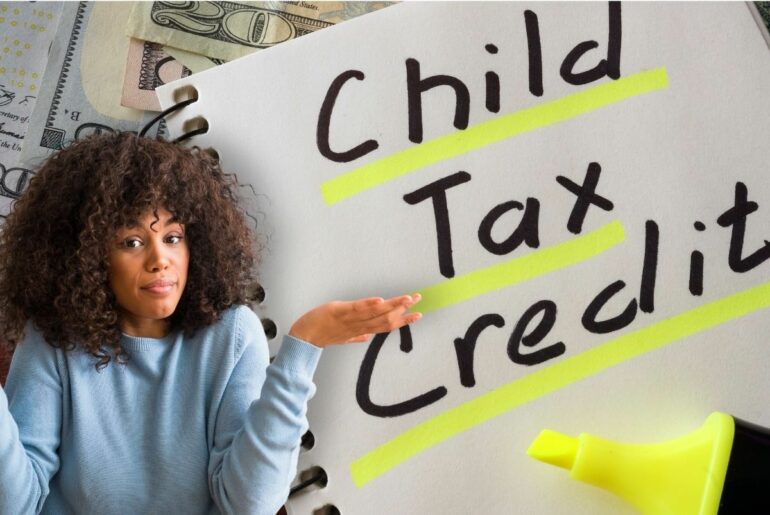With so many folks getting their news and information primarily from social media these days, misinformation is rampant—especially when it comes to big policy changes that are impacting families’ budgets.
The expanded Child Tax Credit (CTC) has just started rolling out in the form of monthly Child Checks sent directly to folks with kids. There are lots of myths and questions surrounding this new policy, and it can be difficult to sort out the misinformation from the facts.
We’ve been listening to parents, and got to the bottom of some of the most frequently asked questions about the expanded CTC:
- Will I have to pay it back?
- Will I still get my usual tax refund?
- How is our government paying for this?
- Can I get this if I don’t file taxes?
- What should I do if I haven’t started getting my checks?
- Will I still get Child Checks if I’m divorced or separated?
- What if my child was born/adopted/turned 18 near the cutoff date or was 17 for part of the year?
- And more…
Will I have to pay it back?
In many cases, no—most people will not have to pay back any of their Child Checks. However there ARE some limited situations when you’d have to pay it back, in which case you might decide to use the IRS website for managing your monthly payments to opt out. Those situations include:
- Your income went up in 2021. Lots of families’ income went down during the pandemic, and may have recovered this year. The CTC amount is based on the last taxes you filed, so the IRS doesn’t know about your higher income from this year yet. If your family’s income went up in 2021, putting you above $75,000 for single filers, $112,500 for head of household, or $150,000 for married couples filing jointly, your child tax credit begins phasing out—and you might have to repay the overage.
- You’re divorced and take turns claiming the kids on your taxes. Again, the CTC is based on whatever you filed last year, so if you claimed your child last year you’ll get the Child Checks associated with that child. Then, when you “trade off” with your ex and they claim the child for their 2021 taxes, the IRS will realize that parent should have received the checks and you could have to pay them back. (See more under “Will I still get Child Checks if I’m divorced or separated?” below.)
- Your child is over 18 now. The CTC covers kids up to age 18 in 2021; so if your child turns 18 any time this year (even as late as Dec 31, 2021) they are not eligible, and you shouldn’t get Child Checks for that child. The IRS should adjust for that automatically, but you should be aware in case you start getting monthly payments anyway.
Remember, in most situations the money is yours to keep. After the six rounds of payments from the IRS (from July through December of 2021), there will be a reconciliation period. During this period, if it’s determined that your family received more than you owed, you may have to pay it back. If any of the above situations apply to you, you can opt out of the payment to avoid having to pay it back. If it turns out any money was owed to you after all, you’ll still get it back when you file your 2021 taxes in the spring. FYI, the IRS’s portal for updating your info and opting out of Child Checks is a little clunky, so if you need help using it you can use this guide that even has a video tutorial.
One important note: If you earn less than $40,000 as a single filer, $50,000 as head of household, or $60,000 for married couples filing jointly, you won’t have to repay any of the money, even if you were overpaid.
Will I still get my usual tax refund?
Actually, even though you get the CTC in monthly payments, your 2021 tax return should stay about the same. That’s because the Child Tax Credit we’re used to getting each year was nearly doubled with the Biden Administration’s American Rescue Plan, and only half of it is being distributed early in monthly Child Checks. So, if your financial situation hasn’t changed and you don’t get an overpayment of the CTC in error (see details above), you should be getting the same amount you’re used to in your tax refund, and the Child Checks are simply a much-needed bonus!
How is our government paying for this?
Almost half of the money for extending the CTC would come from enforcing tax rules that are already on the books and making sure the very rich pay what they should. The rest of the money comes from closing tax loopholes for billionaires. There’s no catch for regular families!
Can I get this if I don’t file taxes?
As long as you qualify (and almost every family does), you are still eligible for this tax credit even if you don’t normally file! The IRS has a non-filer portal where folks who don’t usually file taxes can enter their info in order to start receiving Child Checks.
As long as you have a child under 18 and the following information, you should be all set to start getting your payments:
- Social Security numbers for your children and Social Security Numbers (or an ITIN) for you and your spouse
- Mailing address
- Date of birth
- E-mail address
- Bank account information (if you want to receive your payment by direct deposit)
What should I do if I haven’t started getting my checks?
If you think you should be eligible for Child Checks, but haven’t started receiving them yet, you can use the non-filer portal to start getting payments. You can find out if your family is eligible here. When payments arrive, they’ll show up as direct deposits in your bank account, or as paper checks in the mail. If you need help using the non-filer portal, you can follow along with this guide, which has a video tutorial as well.
Will I still get Child Checks if I’m divorced or separated?
If you’re legally separated, your payments will go to the bank account on your 2020 tax return, or a check will be mailed to the address on the return. If divorced, the Child Checks should go to the parent who claims the child on their 2021 taxes—but since the IRS can’t see into the future and know who will claim your child when you both file taxes in 2022 for the year 2021, they’ll send Child Checks to whoever claimed them on the most recent tax return (2019 or 2020).
So, if you will not be claiming the child for 2021, you should opt out from receiving the CTC via the IRS CTC Update portal or by calling 1-800-906-4184, or you may have to pay that money back next year (see details under Will I have to pay it back?, above). If the child’s other parent gets the checks when you were supposed to—and they don’t opt out—you may have to wait until you file your 2021 taxes in 2022 to claim the Child Tax Credit, at which time you’ll get the full refund you’re eligible for and the other parent will need to pay it back. If you both claim the child next year, the IRS will have to determine which parent should have gotten the checks, which will delay any payments still due.
However, there may be a “safe harbor” that will let lower income families keep Child Checks, even if the money was sent to them in error. The safe harbor starts phasing out at $40,000 for single, $50,000 for head of household and $60,000 for married filing jointly families.
What if my child was born/adopted/turned 18 near the cutoff date or was 17 for part of the year?
Unfortunately, your child does not qualify to receive the Child Tax Credit if they turn 18 any time before Jan. 1, 2022. However, any child born or adopted during the calendar year will qualify for the CTC, no matter when during the year the birth or adoption took place. If you welcomed a new child in 2021, you can update your information with the IRS using their Child Tax Credit Update Portal. Otherwise, you should get your payments all at once with your next tax return.
Don’t see the answer you’re looking for? Try these resources:
Simple explainer with more info about what the expanded Child Tax Credit is and who qualifies.
Child Tax Credit FAQs from MomsRising







